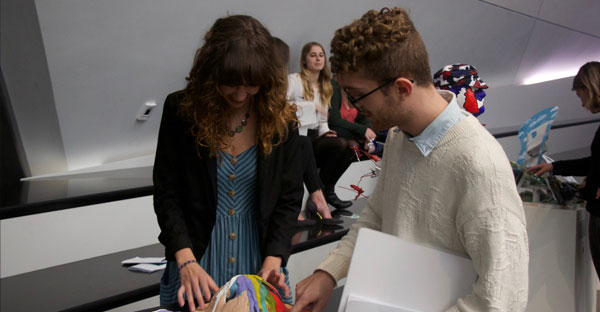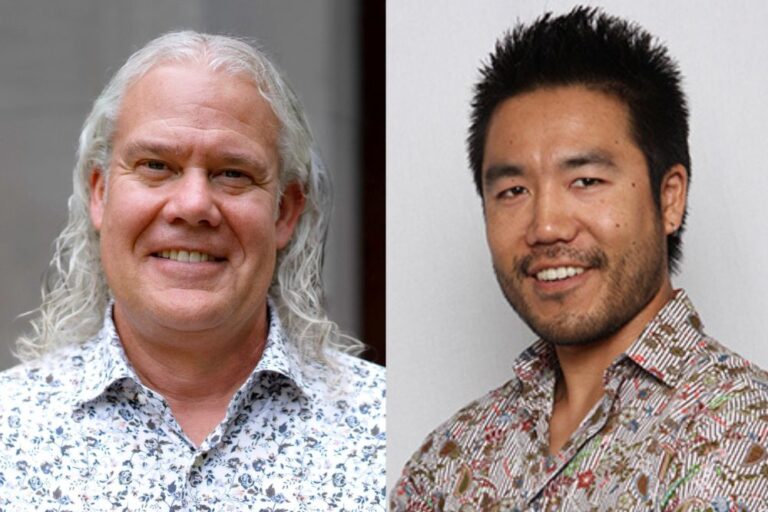
Senior Alex Babbitt has been selected as a member of the newest class in the HASTAC Scholars fellowship program, a student-driven community of graduate and undergraduate students working at the intersections of technology, arts and humanities, and sciences.
As an HASTAC Scholar, Babbit, an English major with two minors in French and Digital Humanities, is able to connect, both virtually and in person, with other scholars who have similar interests. He also organizes and attends webinars, blogs about his digital humanity experiences at MSU, and attends a biennial conference where all HASTAC Scholars meet and connect.
“My role as an HASTAC Scholar is basically to have access to this very large community that is already proving to be very beneficial,” Babbitt said. “I’ve already connected with someone who has asked me to speak on a panel in Chicago about some of the work I’ve done with digital accessibility, which may not have happened if I wasn’t an HASTAC Scholar.”
As an HASTAC Scholar, Babbitt can utilize the HASTAC resources to explore projects and topics that interest him. Currently, he is hoping to use the two-year program to research disability studies, digital pedagogy, and/or queer and gender studies.

To be selected as an HASTAC Scholar, Babbitt had to receive sponsorship through the College of Arts & Letters by writing an essay about why the HASTAC program would be beneficial for him and how, in turn, he would become more beneficial to the community through this association.
“I am extremely grateful that the College of Arts & Letters is sponsoring me because it is allowing me to be a part of these intellectual communities that are benefiting not only my educational and professional future, but even my educational and professional work now,” Babbitt said.
With his end goals of becoming a professor, Babbitt thinks the HASTAC Scholars program will be incredibly valuable, not only now, but also down the road.
“Not only is it a networking opportunity for me, but also it will just make me a stronger applicant for grad school,” Babbitt said. “I will be learning tools and gaining skills that I can apply when I do become a professor.”
“I have complete faith that the digital humanities and the HASTAC Scholar program is going to find its way into every part of my life.”
Babbitt first learned about the HASTAC Scholars program when he joined MSU’s Digital Humanities and Literary Cognition (DHLC) Lab about a year ago, where, like the HASTAC program, students perform interdisciplinary research between literature, cognitive science, and the digital humanities.
“The DHLC has been a space for me to do interdisciplinary research, learn what the study of digital humanities is, and also learn how English and literary science is so much more than just close reading,” Babbitt said.
This intersection is particularly interesting to Babbitt who originally began his college career as a biochemistry major. Once Babbitt switched his major to English, he began searching for a space on campus that could satisfy all of his varied interests. Shortly after, he became a Research Assistant for the DHLC Lab.
“Once I got an email from my advisor telling me about the DHLC, I knew this was the space I’ve always wanted,” Babbitt said. “I’m seeing how technology can change the way we do literary scholarship; the DHLC has allowed me to bring literary tools and literary visualization to the other things that I’m interested in.”

In addition to the DHLC, Babbitt volunteers as a Sexual Assault and Relationship Violence (SARV) educator and is a curator for the TedX MSU program. He is looking forward to utilizing his knowledge of the digital humanities and his experience as an HASTAC Scholar to improve these organizations even further.
“I have complete faith,” Babbitt said, “that the digital humanities and the HASTAC Scholar program is going to find its way into every part of my life.”


